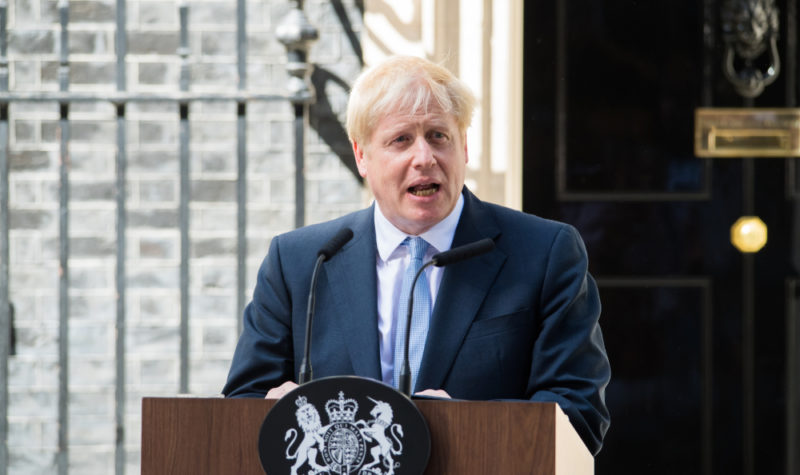3 FTSE 100 shares that could be undervalued after the election

| Master Investor Magazine
Never miss an issue of Master Investor Magazine – sign-up now for free! |
Robert Stephens, CFA, considers why these FTSE 100 stocks may offer good value for money after the Conservative landslide last Thursday.
Fears surrounding a Jeremy Corbyn minority government may have contributed to low valuations for FTSE 100 shares such as SSE (LON:SSE), Next (LON:NXT) and Berkeley Group (LON:BKG) in recent years. Investors have understandably been cautious about the prospects for the economy under a ‘tax and spend’ Labour manifesto that leaned heavily on left-wing policies.
With that risk having evaporated in Thursday’s landslide Conservative win, the valuations of those three stocks could move higher as they deliver on their growth strategies. Therefore, they could offer investment potential after a turbulent period.
Next
A Boris Johnson election victory may not transform weak consumer confidence in the near term. But a continued trend of low unemployment, rapid wage growth and a resolution to Brexit may provide improved operating conditions for retailers such as Next.
Its growth plan centres on an online platform where it has developed a £500m aggregation business that aims to be the first choice for consumers seeking clothing and home products. It is investing in warehousing and its wider supply chain, while aiming to reduce its reliance on the UK through increasing international investment.
Next’s price-earnings ratio of 15.8 may not sound all that cheap compared to other retailers. But its ability to cut costs through renegotiations with its landlords and cater to an increasingly online world could lead to rising profitability.
Berkeley Group
London house prices have been under pressure in the past few years. Prime housebuilder Berkeley Group, which builds around 10% of properties in the capital, has therefore suffered from challenging operating conditions.
This has encouraged it to diversify into new regions, such as Birmingham, while taking on long-term projects that, while complex, could have large payoffs further down the line. They are keeping its profitability on track, and it is expected to return £280m to its shareholders per year until 2025.
Greater political stability and a more business-friendly fiscal policy may encourage rising demand for property in London. Berkeley Group’s shares have already surged 16% higher since the election result was announced. Their forward price-earnings ratio of 15.8 suggests that further capital growth may be ahead.
SSE
The threat of nationalisation under a Labour government rightly caused utility companies such as SSE to become less popular among investors. A Conservative victory means that shareholders can look ahead with greater optimism to the delivery of the company’s strategy of focusing on renewables.
The UK’s commitment to becoming ‘greener’ is unlikely to waver under Boris Johnson. It is expected to become carbon-neutral by 2050, which could benefit SSE as it shifts the focus of its asset base towards opportunities held within its renewables pipeline. The company’s sale of its energy services division should help to speed-up this process, while a 5.6% dividend yield makes the stock an attractive income opportunity.
SSE’s forward price-earnings ratio of 14 is less appealing than it was prior to the election. Its shares have moved 10% higher since then but could have further growth potential due to their income prospects.

Master Investor? No mate you haven´t got a clue, read on …
Why Imperial Brands is the best bet for income investors
By Robert Stephens, CFA 07 October 2016
Since the credit crunch, income investing has become more popular. This has been caused by falling interest rates, low bond yields and an opportunity cost from holding cash. Now that interest rates have fallen yet further, I believe that income investing will become even more important to many more investors. One stock which I think is just right in this scenario is Imperial Brands.
Brexit
Brexit has changed everything for UK investors. The outlook for the UK economy is highly uncertain and the Bank of England has responded by adopting a dovish stance. It has cut interest rates by 25 basis points (bps) to 0.25% and it would be of little surprise for them to fall to just 0.1% in the coming months.
The reason for this is a change in the Bank of England’s forecasts. It now expects minimal growth from the UK economy in 2016/17 and believes that unemployment could rise. Its monetary policy stimulus is designed to provide a boost to the UK economy, but a side effect of it is to cause the income returns on a range of asset classes to fall.
Income appeal
For example, it is difficult to obtain a return on cash of more than 1% at the moment. Even locking up your cash for a year or two will only offer up to 1.5%. Low interest rates have caused sterling to weaken and this will put upwards pressure on inflation over the medium term as imported goods become more expensive in the UK. Although the real return on cash is still positive on an after-tax basis, in 2017 it could turn negative if inflation marches upwards.
It’s a similar story with bond yields. Ten-year UK gilts yield just over 0.8%. Inflation stands at 0.6%, which shows that it would not take much for the real return on gilts to turn negative. Further interest rate cuts could suppress yields even further and make this happen in a matter of months. Similarly, corporate bond yields also lack appeal for income investors. Obtaining a gross redemption yield of over 2% without looking at lower rated credit opportunities is becoming a more challenging task.
Outlook
The problem for income investors is that none of the above is showing any sign of change. If anything, things could get worse before they get better. The uncertainty from Brexit will increase significantly in 2017, in my view. That’s because Article 50 of the Lisbon Treaty will be invoked in Q1 2017, at which point uncertainty will ramp-up as negotiations between the UK and EU commence.
Then there is a two-year period of negotiations, followed by the UK leaving the EU. To my mind, this could be the most uncertain period since the credit crunch as the UK enters a ‘known unknown’ outside of the EU. Between now and then, interest rate cuts are likely as the Bank of England seeks to stimulate the economy. Higher inflation could result and cause assets such as cash and bonds to offer negative real returns.
Solution
Against this backdrop, Imperial Brands (LON:IMB) offers the perfect solution, in my opinion. Its yield of 3.9% is 30 basis points higher than that of the FTSE 100. Crucially it is 330 basis points above the rate of inflation. Future dividend growth is likely to be above and beyond inflation for three main reasons.
Firstly, Imperial Brands has a payout ratio of 63%. This is lower than for tobacco sector peers such as British American Tobacco (LON:BATS), Philip Morris (NYSE:PM) and Altria (NYSE:MO). They have payout ratios of 67%, 98% and 78% respectively. This shows that Imperial Brands’ payout ratio could increase dramatically over the medium term, thereby boosting its dividend.
Secondly, Imperial Brands has bright EPS growth prospects. It is forecast to record a rise in EPS of 15% in the current financial year and 12% in the 2017 financial year. Part of the reason for this is weaker sterling. Imperial Brands reports in sterling but it remains an international business. As mentioned, I’m bearish on the outlook for sterling and this would create further positive currency effects for Imperial Brands.
Thirdly, Imperial Brands has growth potential within the reduced risk product (RRP) space. This segment is dominated by e-cigarettes at the moment and in this arena Imperial Brands has growth potential thanks to its acquisition of the blu e-cigarette brand. blu is the second biggest selling e-cigarette brand in the US. E-cigarette sales are forecast to grow at an annualised rate of over 20% in the long run. This provides Imperial Brands with a positive catalyst for its EPS and dividend growth.
Valuation
As well as having bright growth prospects and appealing income potential, Imperial Brands also offers good value for money relative to its sector peers. For example, Imperial Brands has a forward P/E ratio of 15.9, which is lower than for international tobacco companies British American Tobacco, Philip Morris and Altria. They have P/E ratios of 20, 19.4 and 18.5 respectively. In my view, this indicates that Imperial Brands’ share price could move higher and still offer relatively good value for money.
Income investment
I believe that income investors are in for a tough ride. Inflation is likely to rise as a weaker pound impacts on import prices. In tandem, the income return from cash, bonds and other asset classes will fall as an increasingly dovish Bank of England reacts to Brexit uncertainty. Therefore, turning to higher yield shares may prove to be the best option for investors seeking to record an inflation-beating return on their investment.
In this scenario, Imperial Brands has significant appeal. Its low payout ratio, high yield, relatively low valuation and growth prospects from e-cigarettes mean that it holds great promise as an income investment. In my opinion, it is the best option for long-term income investors at this moment in time.
Err … no mate that moment in time is now 12/12/2019
Robert Stephens, CFA, holds shares in Imperial Brands and British American Tobacco.
Well Done Mr Master Investor, super impressive!